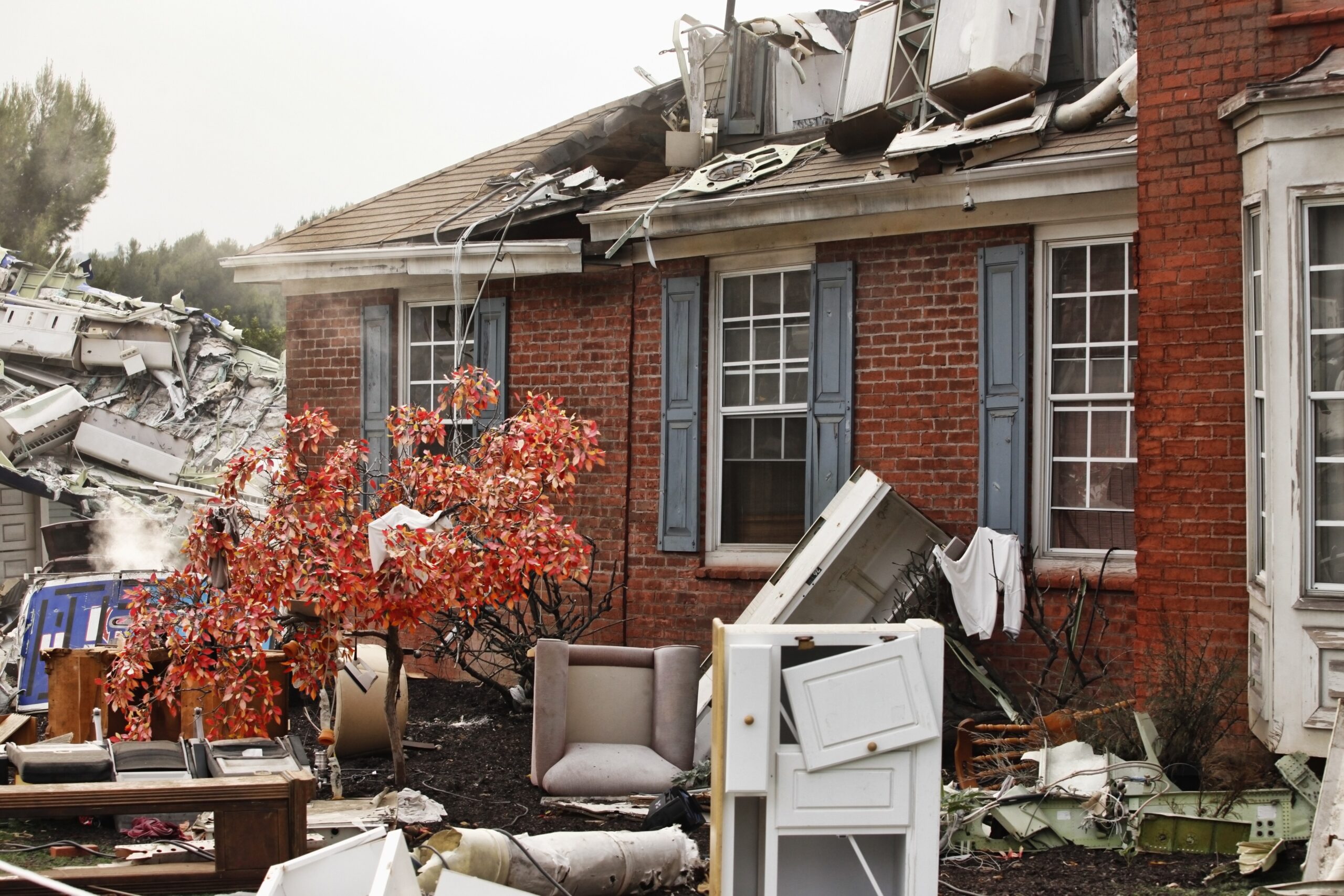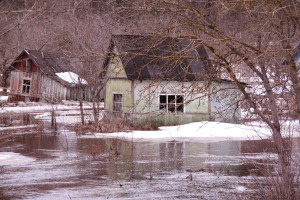 So you say you’ve never had to file any homeowner’s insurance claims. (knock on wood!) If you fall into this category, then you’re one of the fortunate ones. However, as long as you’re aware that disasters can occur at any moment, you’re more prone to take precautions to lessen the blow whenever the need to file a claim may pop up. Even the most common damages or injuries that occur inside or around the home can be minimalized with a few simple preventative measures. Check out some of the ways you can decrease the likelihood of having to file a claim on your home.
So you say you’ve never had to file any homeowner’s insurance claims. (knock on wood!) If you fall into this category, then you’re one of the fortunate ones. However, as long as you’re aware that disasters can occur at any moment, you’re more prone to take precautions to lessen the blow whenever the need to file a claim may pop up. Even the most common damages or injuries that occur inside or around the home can be minimalized with a few simple preventative measures. Check out some of the ways you can decrease the likelihood of having to file a claim on your home.
Prevent Damage, Injury, and Costly Homeowner’s Insurance Claims Against…
Weather:
With a lack of caution, unpredictable weather such as wind, rain, hail, snow and other storms can force the need to file homeowner’s insurance claims.
– Purchase and install storm doors and windows. Always keep them securely locked during any type of storm.
– Prepare proper storage for outdoor furniture, lawn ornaments, potted plants, or any light-weight yard items. Things such as deck tables or potted plants can not only get damaged themselves but can become dangerous when thrown around by extremely high winds.
– Lightning can also pose a threat. Install lightning rods to avoid as many lightning strikes as possible. Use surge protectors and unplug unnecessary electronics during a storm.
– During the winter, accumulated snow can wreak havoc on homes, especially those with flat roofs. Clear off your roof any time there is snowfall. Just a foot of snow can weaken a flat roof to the point of collapse.
– Hire a licensed professional to trim any tree branches that hang over your home. Branches can become weakened and snap from intense winds or added weight from snowfall.
Water:
Water damage is not typically covered by standard homeowner’s insurance; therefore, you often need a separate policy.
– Rain gutters should be relatively new and installed securely. Aim gutter reservoirs as far away from your home’s foundation as possible. Clear all gutters of leaves, mud and other debris at least twice a year to allow water to flow easily.
– Regularly inspect outdoor water hoses, spouts and other things that discharge water. Pay attention to details while looking for wet spots or leaks.
– Have your roof inspected annually, as the smallest leak can quickly escalate into a much larger problem.
– Seek professional assistance at the first sight of leaks coming from your sinks, toilets, showers, or other indoor piping. Especially in regards to plumbing, repairs will only increase in cost and aggravation the longer you put them off.
Fire:
Fire damage to your home can be devastating, but it is also one of the most preventable disasters.
– Unplug electronics when they are not in use.
– Damaged electrical cords should be replaced immediately.
– Keep furnaces, space heaters, fireplaces, and other heat sources properly maintained and far away from flammable objects and furniture. Never leave heating sources or flames, such as candles, unattended.
– For smokers, try to smoke outside whenever possible. In case you do smoke indoors, thoroughly extinguish your cigarette/cigar
and its ashes with water. Never smoke when you are sleepy.
– Set a timer with an alarm whenever using an oven, stovetop or grill to remind you that it is on. Never wear loose-fit clothing when cooking.
– Keep all lighters and flame sources stored away and out of reach of children.
– Connecticut state law requires smoke detectors to be installed on each floor of your home. As an extra precaution, install these detectors in each bedroom as well. Test them every month to make sure they are working properly.
– Store fire extinguishers at each end of the house. Check their gauges monthly and replace them right away if they are inoperable. (see image on right)
Accidents:
If someone is injured on your property, you may be liable depending on the circumstances.
– Clear all ice/snow from walkways and doorsteps during the winter.
– Rearrange electrical chords, furniture or other objects that can be a tripping hazard.
– Replace any loose or broken floorboards, stairs, handrails or driveway divots that can cause injury.
– Swimming pools should be completely fenced in with a locking gate.
– Properly secure any hanging decorations or furniture that can potentially fall and injure someone.
– Dog owners can be liable if their pet bites someone on your property. The best solution for this is to properly train your dog to not be aggressive, but if that is not in the cards, keep your dog fenced in your yard and display a “Beware of Dog” sign on the fence.
Prevention is key! It doesn’t require a lot of effort to safeguard your home and side-step the most common homeowner’s insurance claims. In some instances, your home may require additional coverage in the form of a Personal Umbrella. If you believe this might be the case for you, please contact us today for a quote!


 It has been a brutal winter in the Eastern part of the United States with New England states receiving the brunt of the snow and nasty weather. In one day, Worcester Massachusetts had 31.9 inches of snow on January 27th, which came on top of several other feet of snow this winter. Thompson, Connecticut had over 30 inches on that day too. Communities and states went from worrying about trying to dig out from the snow to trying to figure out where they were going to put it all when they did remove it.
It has been a brutal winter in the Eastern part of the United States with New England states receiving the brunt of the snow and nasty weather. In one day, Worcester Massachusetts had 31.9 inches of snow on January 27th, which came on top of several other feet of snow this winter. Thompson, Connecticut had over 30 inches on that day too. Communities and states went from worrying about trying to dig out from the snow to trying to figure out where they were going to put it all when they did remove it. So you say you’ve never had to file any homeowner’s insurance claims. (knock on wood!) If you fall into this category, then you’re one of the fortunate ones. However, as long as you’re aware that disasters can occur at any moment, you’re more prone to take precautions to lessen the blow whenever the need to file a claim may pop up. Even the most common damages or injuries that occur inside or around the home can be minimalized with a few simple preventative measures. Check out some of the ways you can decrease the likelihood of having to file a claim on your home.
So you say you’ve never had to file any homeowner’s insurance claims. (knock on wood!) If you fall into this category, then you’re one of the fortunate ones. However, as long as you’re aware that disasters can occur at any moment, you’re more prone to take precautions to lessen the blow whenever the need to file a claim may pop up. Even the most common damages or injuries that occur inside or around the home can be minimalized with a few simple preventative measures. Check out some of the ways you can decrease the likelihood of having to file a claim on your home.